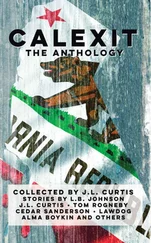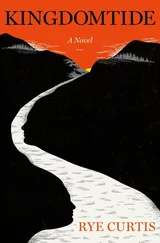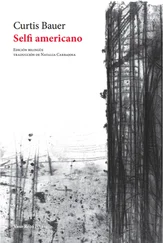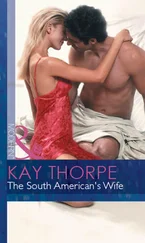Curtis Sittenfeld - American Wife
Здесь есть возможность читать онлайн «Curtis Sittenfeld - American Wife» весь текст электронной книги совершенно бесплатно (целиком полную версию без сокращений). В некоторых случаях можно слушать аудио, скачать через торрент в формате fb2 и присутствует краткое содержание. Жанр: Старинная литература, на английском языке. Описание произведения, (предисловие) а так же отзывы посетителей доступны на портале библиотеки ЛибКат.
- Название:American Wife
- Автор:
- Жанр:
- Год:неизвестен
- ISBN:нет данных
- Рейтинг книги:4 / 5. Голосов: 1
-
Избранное:Добавить в избранное
- Отзывы:
-
Ваша оценка:
- 80
- 1
- 2
- 3
- 4
- 5
American Wife: краткое содержание, описание и аннотация
Предлагаем к чтению аннотацию, описание, краткое содержание или предисловие (зависит от того, что написал сам автор книги «American Wife»). Если вы не нашли необходимую информацию о книге — напишите в комментариях, мы постараемся отыскать её.
American Wife — читать онлайн бесплатно полную книгу (весь текст) целиком
Ниже представлен текст книги, разбитый по страницам. Система сохранения места последней прочитанной страницы, позволяет с удобством читать онлайн бесплатно книгу «American Wife», без необходимости каждый раз заново искать на чём Вы остановились. Поставьте закладку, и сможете в любой момент перейти на страницу, на которой закончили чтение.
Интервал:
Закладка:
Jessica passes me a note: Hank on hold, says urgent.
“Mom?” Ella says.
“Let me call you back in a minute.” When I’ve pressed the “end” button on one phone, Jessica passes me another, and I cover the mouth-piece. “He won’t say what it’s about?”
“He wants to talk to you directly,” Jessica says.
I hold the phone to my ear. “This is Alice.”
“Ding dong, the witch is dead.” Hank’s voice is unmistakably gleeful. “Gladys Wycomb bought the ranch an hour ago.”
“What are you talking about?”
Jessica mouths, “ What? ” I hold up a finger.
Hank says, “The old ticker gave out, and no, I didn’t have her offed, if that’s what you’re wondering.”
“Did you?” A wave of horror passes over me. I’m not a conspiracy buff, but I’m quite sure things take place in any presidency that would shock most voters; I’ve never dwelled on what those things might be in Charlie’s case, because I am conflicted enough about the controversies that are known and legal.
“Alice, I swear to you I had nothing to do with it, and neither did anyone else except Mother Nature. Now, tell me this isn’t the best news you’ve heard since Van Halen announced their reunion tour.”
“But her helper, Norene—”
“Not a chance. Turns out in the mid-nineties, she was the go-to girl for dime bags in Cicero, Illinois, and she’s got a police record longer than your arm. The geriatric feminist avenger had nothing to lose, but Norene has plenty.”
“You’re telling me that Dr. Wycomb died of completely natural causes?”
Jessica is still standing in front of me, and her jaw drops. “Gladys Wycomb died ?” she whispers, and I nod.
“She was a hundred and four, Alice,” Hank is saying. “There doesn’t need to be foul play—unless it was you who slipped a wee thimbleful of arsenic in her afternoon tea.”
“I don’t find that funny.”
“In all seriousness, blackmailing you was probably physically draining. I’ve got to hand it to her that she went out with a bang and not a whimper, but the good news for us is it’s over—the abortion story is off the table. You ready to come home and be saluted by students and teachers?”
“How can you be sure she didn’t tell anyone besides Norene?”
“So what if she did? It’ll be hearsay, nothing but another urban legend. You’ve got a former physician claiming she performed the abortion, the press is going to sit up and take notice. You’ve got a friend of a friend of an aide of a dead lady, and if you seriously think that’ll fly, well, then wait till you hear the one about Richard Gere and the gerbil.”
“I’m assuming you’ve told Charlie?” I say.
“He said to tell you congratulations.”
When I’ve hung up, Jessica says jokingly, “What, he took out a hit on her?”
“I know. Maybe she sensed the end was near and that’s what made her act, but it’s awfully unsettling. Hank is dancing a jig because he thinks this gets me off the hook.”
Jessica is quiet, musing, and then she says, “It probably does.”
WHEN I CONSIDER the trajectory of Charlie’s presidency, when I try to pinpoint the moment its tone and direction were established irrevocably, I keep revisiting his choice of vice president. In the summer of 2000, the decision had to be made in time for the Republican National Convention, and it came down to two candidates: Arnold Prouhet and Frank Logan. Frank was two years younger than Charlie, a Colorado senator who was serving his third term, came from a wealthy Baptist family, was a father of eight, and was a vocal critic of homosexuality and abortion. (I have always found it peculiar, to say the least, when conservatives, especially conservative men, make these particular issues their ideological focus; there is something suspect to me about individuals who devote enormous amounts of time and attention to subjects they profess to find repugnant.) I was opposed to Charlie selecting Frank as his running mate, and I also didn’t relish the idea of spending time with Frank’s wife, Donna Sue, who had self-published several books proffering tips on raising a traditional Christian family.
Meanwhile, Arnold Prouhet had been a congressman from Nevada in the seventies and early eighties who subsequently served under two presidents as a security adviser. As far as I knew, Arnold was more a fiscal conservative than a social one, he was eleven years Charlie’s senior, and on the few occasions I’d met him, he’d seemed serious and taciturn; I imagined these would be qualities that might help balance Charlie’s playfulness. (While Charlie had, under Hank’s tutelage, become a disciplined student of policy and government, I knew, and I think everyone knew, that he was in it for the power and adventure and human connection and not because of any wonkish devotion to or interest in the issues. The problem that has ensued is that wonkish devotion cannot be faked. The fever isn’t in Charlie’s blood, as it is in Hank’s—Charlie would never read a book about the First Amendment for pleasure—and this is why so often in the years since, when there has been a deviation from the public script or when, as at a debate or a press conference, there isn’t a script, Charlie falters. Being president is for him like taking a ninth-grade English test on The Odyssey, and he’s the kid who did most of the reading, he studied for an hour the night before, but he’s not one of the people who loved the book. Besides, he’d always rather crack a funny joke in class than offer a genuine insight.)
Hank objected to the selection of Arnold Prouhet, saying that where Frank Logan shared Charlie’s youthful energy, Arnold seemed old and dour. Arnold also could make Charlie appear insecure, as if he were seeking a father figure. But Arnold’s foreign policy expertise was significant, I countered when I was asked to weigh in (which was never by Hank and occasionally by Charlie, though usually he wanted to vent more than he wanted input). I also worried that Frank Logan’s own ambitions might hinder his work with Charlie; if he became vice president, he’d probably run for president afterward, whereas if Charlie served two terms, Arnold Prouhet would be seventy-three when they left office, and unlikely to embark on a presidential campaign. Charlie’s advisers besides Hank—among them Debbie Bell, a consultant named Bruce Kettman, and a frighteningly smart twenty-six-year-old protégé of Hank named Scott Taico whom Charlie called “Taco”—had mixed opinions, and I felt fairly sure Charlie would pick Frank Logan, but he didn’t. He picked Arnold. The night before he made the announcement in July 2000, he said to me, “I think you might be right about Logan, that he’s too focused on peering into people’s bedrooms and not enough of a visionary.”
Again, then, I find myself wondering if I am partly to blame for what has happened since. Would Frank Logan in fact have been a better vice president, would there have been less bloodshed under his watch? More homophobia, a sharper curtailing of reproductive rights, but not the unilateral use of military force, the defiant enthusiasm for preemptive war? It is indisputable that Charlie has been greatly influenced by Arnold Prouhet, and indeed it seems to be because Arnold has been so influential that Charlie insists as relentlessly as he does that he believes in the war, that he won’t back down. How embarrassing it would be not only to rely on the guidance of one’s hierarchical inferior but to rely on the wrong guidance—how unsophisticated Charlie would seem to himself and everyone else. And so rather than consider this possibility, he forces it to be untrue, he continues down the path he chose.
Читать дальшеИнтервал:
Закладка:
Похожие книги на «American Wife»
Представляем Вашему вниманию похожие книги на «American Wife» списком для выбора. Мы отобрали схожую по названию и смыслу литературу в надежде предоставить читателям больше вариантов отыскать новые, интересные, ещё непрочитанные произведения.
Обсуждение, отзывы о книге «American Wife» и просто собственные мнения читателей. Оставьте ваши комментарии, напишите, что Вы думаете о произведении, его смысле или главных героях. Укажите что конкретно понравилось, а что нет, и почему Вы так считаете.












